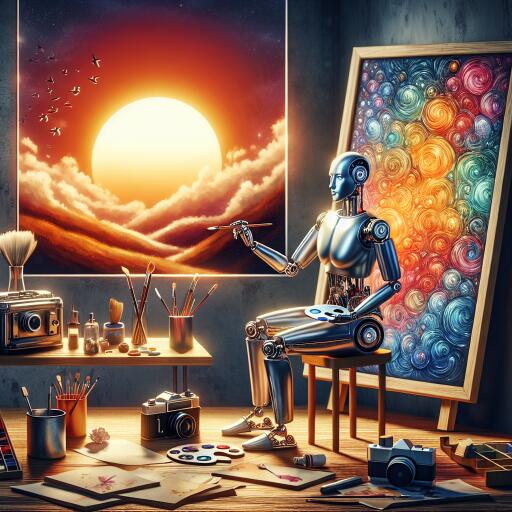Exploring the Impact of AI on Creative Jobs: Insight from OpenAI’s CTO
The integration of artificial intelligence (AI) into the professional realm continues to stir debate, particularly around its impact on creative industries. Recently, the Chief Technology Officer of OpenAI, the organization behind groundbreaking AI technologies, shared insights that might unsettle those holding creative roles. According to the CTO, the rise of AI technologies could render certain creative jobs obsolete, suggesting that some of these positions “maybe shouldn’t have been there in the first place.”
During a discussion at Dartmouth’s School of Engineering, the remarks made were met with a mixture of intrigue and concern, reflecting the broader anxiety surrounding AI and employment. Critics online were quick to voice apprehensions, accusing OpenAI of undermining job security in creative fields.
The core of OpenAI’s message, however, leans towards describing AI as a collaborative tool rather than a replacement for human creativity. “These tools actually lower the barrier for anyone to think of themselves as creative,” OpenAI’s CTO articulated in a conversation with Dartmouth University Trustee Jeffrey Blackburn. This democratization of creativity, as posited by the CTO, suggests a future where AI enables more individuals to engage in creative pursuits, potentially expanding the horizons of human creativity.
Yet, the acknowledgment that the full implications of AI on employment remain largely unknown adds a layer of uncertainty. “I’m not an economist, but I certainly anticipate that a lot of jobs will change, some jobs will be lost, some jobs will be gained,” the CTO admitted during the talk, highlighting the unpredictable nature of AI’s impact on the job market.
This debate has been further fueled by comments from the CEO of Klarna, who recently extolled the cost-saving benefits of generative AI, notably at the expense of photographers and the broader photo industry. Such comments underscore the tangible economic incentives driving companies towards AI solutions, raising concerns among creative professionals about their future in a rapidly evolving landscape.
Despite these apprehensions, there’s existing optimism about the continued demand for human creativity. Forbes, referencing a talent report from this year, points out that the pursuit for creative talent remains vigorous, with at least 200,000 creative jobs added in 2023 alone. This suggests that, despite advancements in AI, the appetite for human creativity persists unabated in the corporate world.
Nonetheless, the discourse surrounding generative AI – a technology that owes its evolution to the work of creatives, often without their consent – evokes a complex range of emotions. On one hand, there’s the potential for AI to become a powerful tool that enhances human creativity, making it more inclusive and accessible. On the other hand, there’s palpable unease about these technologies displacing creative professionals, especially as AI capabilities continue to advance.
Critics like Giovanni Colantonio argue that relying on AI for creative output undermines the essence of creativity itself. “You literally aren’t creating. A machine creates the thing for you. It kneecaps creativity, not fosters it,” Colantonio noted, reflecting a sentiment shared by many in the creative community.
As the debate rages on, the future of creative jobs in the age of AI remains an unfolding narrative, interspersed with both cautionary tales and optimistic projections. What is clear, however, is that the intersection of creativity and technology will continue to be a battleground for discussions about the nature of work, creativity, and the irreplaceable value of the human touch in an increasingly automated world.
The evolution of AI promises a new era of collaboration between humans and machines, but the journey towards this future will require careful navigation to ensure that the creativity and livelihoods of artists and professionals are not only preserved but also enriched.










